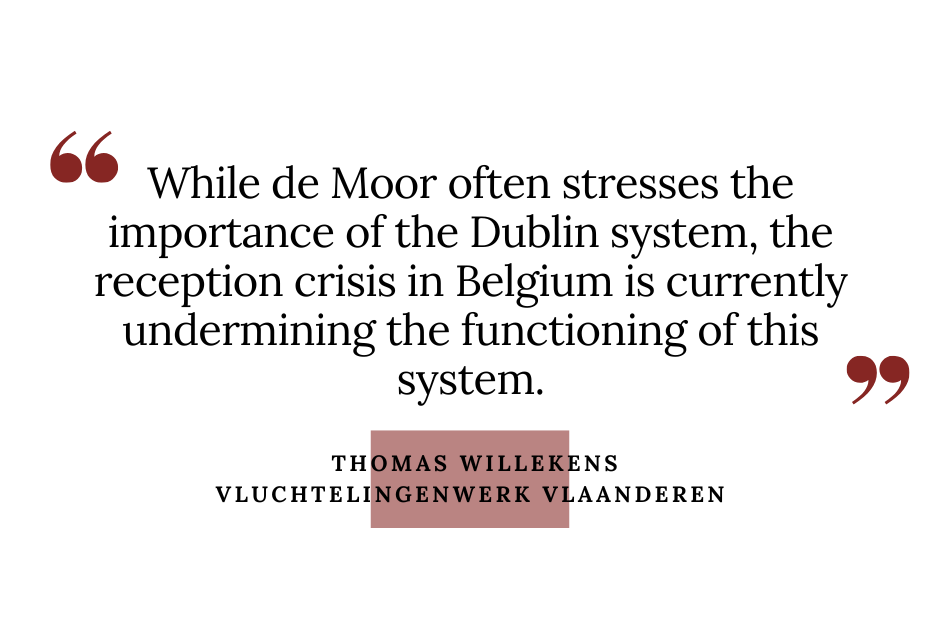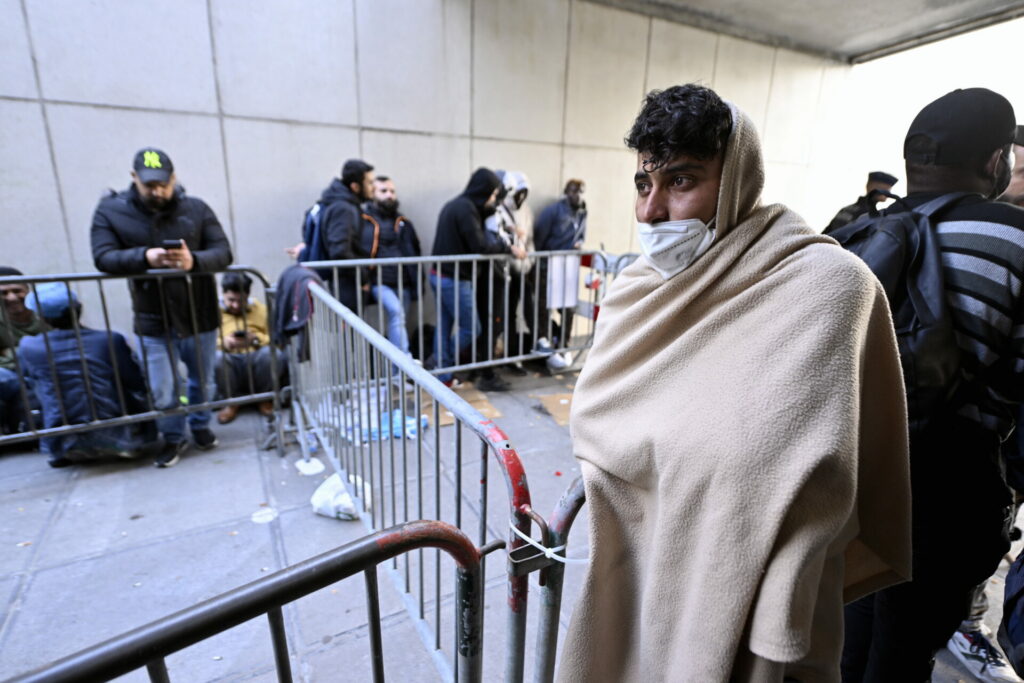A Dutch court has suspended the transfer of an asylum seeker to Belgium due to the ongoing reception crisis which has seen hundreds of people sleep rough instead of receiving legally-entitled shelter.
On Monday, a court in The Hague made an agreement with a Chinese asylum seeker after his Dutch application for asylum could not be processed, given that Belgium was the first country he entered, therefore making it responsible for his procedure under the Dublin regulation.
Belgium's State Secretary for Migration, Nicole de Moor, has repeatedly stressed the importance for all EU Member States to apply the Dublin regulation – most recently during the EU Summit earlier this month when she reiterated that this procedure must be respected until the new European Pact on Asylum and Migration comes into force.
"While de Moor often stresses the importance of a good functioning Dublin system, the ongoing reception crisis in Belgium is currently undermining the very functioning of this system, as highlighted by the judgement," Thomas Willkens of Vluchtelingenwerk Vlaanderen told The Brussels Times.
According to Willekens, the court's decision once again "highlights the fact that the Federal Government is not doing enough to solve reception crisis."

De Moor, meanwhile, noted that the ruling mainly proves the need "to apply the Dublin rules throughout Europe," arguing that thousands of asylum seekers who applied in our country last year were already registered elsewhere in Europe and "are actually the responsibility of other countries."
"If those countries took responsibility, we would not have a reception crisis today and could provide reception to these asylum seekers. I remain committed to necessary reforms at the European level," de Moor told Belga News Agency.
Rare ruling
The Belgian state has been convicted both by national courts and the ECHR for its failure to provide shelter to people who seek asylum in the country. Fedasil, the agency in charge of asylum reception, has been convicted thousands of times. However, the court rulings are often ignored, and even those with a decision in their favour are left sleeping rough.
This matter was referred to in the Dutch court ruling, reading that "the Belgian government has — on a large scale — failed to heed the judgment of the Belgian court."
Due to this reception crisis, which has been ongoing for more than a year, "Dublin returnees" are no longer guaranteed to receive the shelter they are legally entitled to, meaning the "interstate trust," which ensures that Member States can automatically assume that asylum reception and procedures everywhere meet certain minimum standards, is no longer guaranteed.
This led to the Dutch court not sending an asylum seeker back to Belgium, a decision that Willekens explained is rare. "To show that the interstate trust is not guaranteed, there must already be 'systemic deficiencies' (for which the threshold is very high). So this happens very rarely."
Related News
- Over 250 asylum seekers sleeping in tents by canal as authorities shift blame
- Despite 6,000 convictions, Belgium still refuses to tackle reception crisis
The court has ruled that Dutch authorities must now "better justify that Dublin returnees will be able to count on reception in Belgium," for example, by making it plausible that in Belgium, Dublin returnees are treated differently from other asylum seekers.
"This case in the Netherlands is currently still an isolated case, but if suddenly all courts in the Netherlands start ruling like this, it could have a major impact on Dublin transfers to Belgium in general," Willekens concluded.

